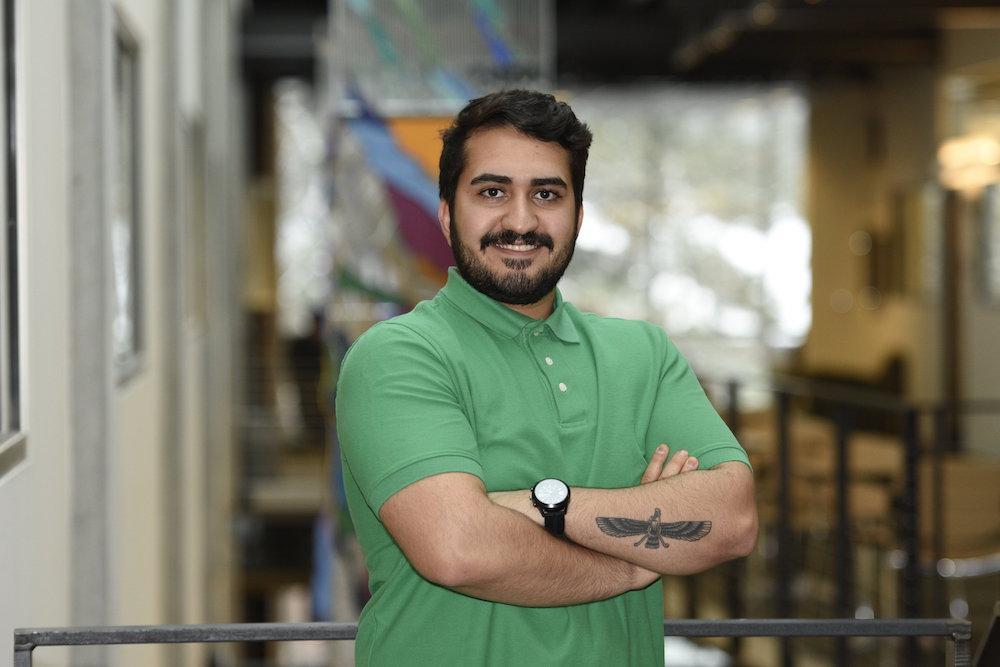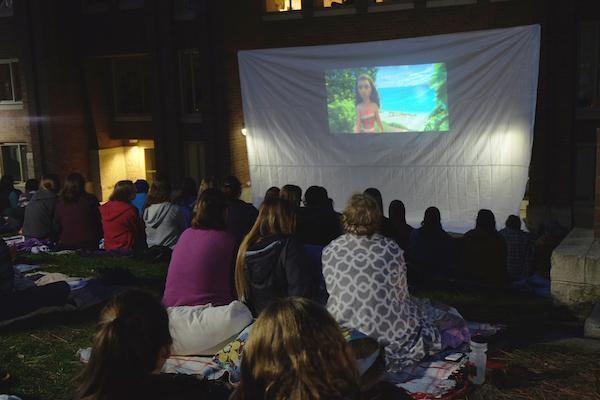Iranian student shares his experiences at Whitworth during Trump presidency
by Hayley O’Brien | Arts & Culture Editor

Over Jan Term break President Trump signed an executive order banning citizens from entering the United States for 90 days from seven countries: Iran, Iraq, Syria, Libya, Sudan, Somalia, and Yemen. Although the travel ban has since been halted by a U.S. district court judge, President Trump has taken his case to the appeals court. There are several students studying at Whitworth this semester from those countries, one of whom is junior biology major Hossein Farahmand.
“In the U.S. what they think of Iran is this really evil country that wants to bomb Israel,” Farahmand said. “There’s a difference between the Iranian government and the people but I’m seen with the same eyes the Iranian government is seen.”
Farahmand lived in Iran with his family until 2011 when he moved to Poulsbo, Washington, at the age of 15 to live with his aunt.
Today Farahmand lives a life similar to many other Whitworthians.He plays intramural sports such as soccer and basketball, and has served in leadership positions.
He was an resident assistant in Duvall last year, assisted with Buck’s Bridge, the program that helps first-generation college students transition to university life, and works at the Intercultural Student Center.
“I really like working at the ISC,” Farahmand said. “You know how Disneyland says it’s the happiest place on earth? Lulu [Gonzalez] calls it the happiest place on campus and it’s really like that.”
Since Farahmand has a valid visa the travel ban wouldn’t have affected him directly however, some of his family members and friends were affected.
He also worries about long term implications of what the ban could cause, Farahmand said.
“I have no problem if it’s just a three-month thing,” he said. “The problem is ifit gets renewed. I wouldn’t get to see my family.”
Because of his experiences with the recent election, he has a hard time staying optimistic regarding his status in the U.S., Farahmand said.
“I think, because of the false hope, a lot of people like me are pessimistic,” he said. “It’s that worry: what’s going to happen next? Will [President Trump] arrest us and put us in camps like they did with the Japanese? People say it will never happen but that’s the exact same thing they said about banning Muslims from the country.”
Since the election, his face-to-face relationships haven’t changed but his relationships online have become more hostile, Farahmand said.
“I play PlayStation online a lot,” he said. “Since the last days of [President Trump’s] campaign everyone has been racist online. I guess my user name, housainFA, gives it away that I’m Middle Eastern.”
Farahmand has now been in the U.S. for more than five years, a result of his family deciding in 2006 to send him to school in the U.S., Farahmand said. Three factors led to their decision.
First, all Iranian men must join the military at the age of 18 and serve for a minimum of 18 months. Farahmand’s father wanted him to avoid entering the military because he worried that Iranian international relations would remain unstable and Farahmand would be thrust into a combat zone.
Also, there are less medical school options in Iran than in the United States and therefore Farahmand’s family believed Farahmand’s chances of being accepted into an American medical program was higher than getting into an Iranian one. There is also a prestige attached to an American medical degree that other countries’ programs lack, Farahmand said.
Lastly, in 2006, an economic recession in Iran depreciated the Iranian rial, which devalued the money Farahmand’s family had saved to send him to the U.S.
So it was decided he should go to the United States to finish his schooling; however, doing so is easier said than done.
There has not been a U.S. embassy in Iran since the 1979 revolution, so to apply for a study visa Iranians must travel to one of the U.S. embassies in a country nearby such as Turkey, the United Arab Emirates or Armenia, according to the Virtual U.S. Embassy Iran.
At 13 years of age, Farahmand flew to Dubai with paperwork in hand and applied for his first U.S. Visa. After handing over letters attesting to where he would stay and study and finishing a 40-minute interview talking to a man through a glass window, Farahmand was rejected for a visa.
He waited a year and tried again, this time flying to the Armenian U.S. embassy where he once again handed over his paperwork and began the interview process. Three hours after entering the embassy he left with a two-year study visa and was on his way to finishing high school in the United States.
Contact Hayley O’Brien at hobrien17@my.whitworth.edu.














 Spokane?
Spokane?